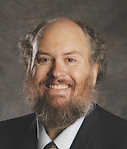Academic freedom is being tested in many law school classrooms nationwide, a situation ripening into legal challenges, says a University of Houston legal scholar.
One such lawsuit involves a 10th U.S. Circuit Court of Appeals case in which a Mormon student at the University of Utah refused to recite lines required in a theater class because they offended her faith and sensibilities.

A federal court in Sylvester v. Texas Southern University School of Law overturned a “B” grade because the student felt she did not get due process from the professor or dean’s office when she protested the grade.
“While these challenges are almost always won by the faculty member, there are ways available to reduce the likelihood of such disputes being taken to court,” says Michael Olivas, the William B. Bates Distinguished Chair in Law, University of Houston Law Center. “The faculty needs to be more vigilant and be aware that some students hold certain beliefs, and some are not willing to render unto Caesar.”
Olivas on Oct. 11 will give the 20th annual University Senate’s Davis, Markert, Nickerson Lecture on Academic and Intellectual Freedom.
His lecture begins at 4 p.m. in Blau Auditorium at the Stephen M. Ross School of Business. The lecture, entitled “God, Grades and Sex: The Developing Law of the College Classroom,” is free and open to the public.
In addition to the lecture, he will discuss his book and film “Colored Men” and “Hombres Aqui: Hernandez v. Texas and the Emergence of Mexican American Lawyering” at 7 p.m. Oct. 10 at the Rackham Amphitheater. He will sign his book after the film and lecture, which is free and open to the public. This event is sponsored by the Program in Latina/o Studies and American Culture and Academic Freedom Lecture Fund.
In Hernandez v. Texas, the U.S. Supreme Court in 1954 overturned a murder conviction of Pete Hernandez, a Mexican-American, whose trial three years earlier involved an all-white jury, not a “jury of their peers.” A second trial — this one with two Mexican-American jurors — still resulted in a conviction and he was sentenced to 20 years in prison.
“This case highlighted the importance of having diverse juries, which can provide greater perspectives when they discuss the evidence,” says Olivas, who is president-elect of the Association of American Law Schools.
The lecture series was established in 1990 by the faculty Senate Assembly to honor three U-M faculty members, Chandler Davis, Clement Markert and Mark Nickerson, who in 1954 were called to testify before a Congressional Committee on Un-American Activities. All invoked Constitutional rights and refused to answer committee questions about their political associations. For these actions, the three were suspended and Nickerson was denied the summer portion of his fiscal year salary. Subsequent hearings and committee actions at U-M resulted in different outcomes. Markert was reinstated; Nickerson, a tenured professor, and Davis were dismissed from the university.
The lecture is sponsored by the Academic Freedom Lecture Fund, American Association of University Professors U-M-Ann Arbor Chapter and Michigan Conference, Office of the President, Office of the Provost, Office of the Vice President for Communications, Office of the General Counsel, Office of the Senior Vice-Provost for Academic Affairs, Martin Luther King Jr.-César Chávez-Rosa Parks Visiting Professors Program, Law School, Latina/o Studies Program, the Senate Advisory Committee on University Affairs and an anonymous donor.

